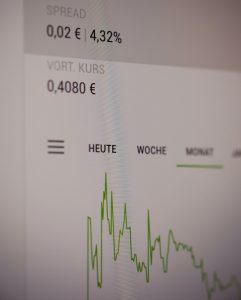Forex market is the largest financial market in the world. It is a decentralized market where currencies from around the world are traded. The forex market is affected by various factors including economic indicators, geopolitical events, and government policies. One of the most significant factors that affect the forex market is a recession. A recession is a period of economic downturn where there is a significant decline in economic activity. In this article, we will discuss what happens to the forex market in recession.
During a recession, investors tend to become risk-averse, which means they tend to move their investments from risky assets to safe-haven assets. Safe-haven assets are assets that are considered to be low risk, and they tend to hold their value during periods of economic uncertainty. The most common safe-haven assets are gold, US Treasury bonds, and the US dollar. As a result, during a recession, the value of the US dollar tends to rise, and other currencies tend to fall.
Another factor that affects the forex market during a recession is the interest rate. Central banks tend to lower interest rates during a recession to stimulate economic growth. Lower interest rates make borrowing cheaper, and it encourages businesses and consumers to borrow and spend more. However, lower interest rates also make a currency less attractive to investors, which can cause the value of the currency to fall.
During a recession, governments also tend to implement fiscal stimulus measures to boost economic growth. Fiscal stimulus measures include increased government spending, tax cuts, and subsidies. These measures can lead to an increase in government debt, which can cause the value of the currency to fall.
One of the most significant factors that affect the forex market during a recession is the demand for exports. A recession tends to cause a decline in global trade, which can negatively affect countries that rely on exports. Countries that export commodities tend to be the most affected during a recession. For example, countries that export oil tend to experience a decline in demand and a drop in oil prices. This can negatively affect the value of the currency of the exporting country.
The forex market is also affected by the stock market during a recession. During a recession, stock prices tend to fall, which can lead to a decline in the value of the currency. This is because investors tend to sell their stocks and move their investments to safe-haven assets.
In conclusion, a recession can have a significant impact on the forex market. During a recession, investors tend to become risk-averse, and they tend to move their investments to safe-haven assets. This can cause the value of the US dollar to rise, and other currencies to fall. Lower interest rates, fiscal stimulus measures, and declining demand for exports can also negatively affect the value of a currency during a recession. It is important for forex traders to be aware of these factors and to adjust their trading strategies accordingly during a recession.





